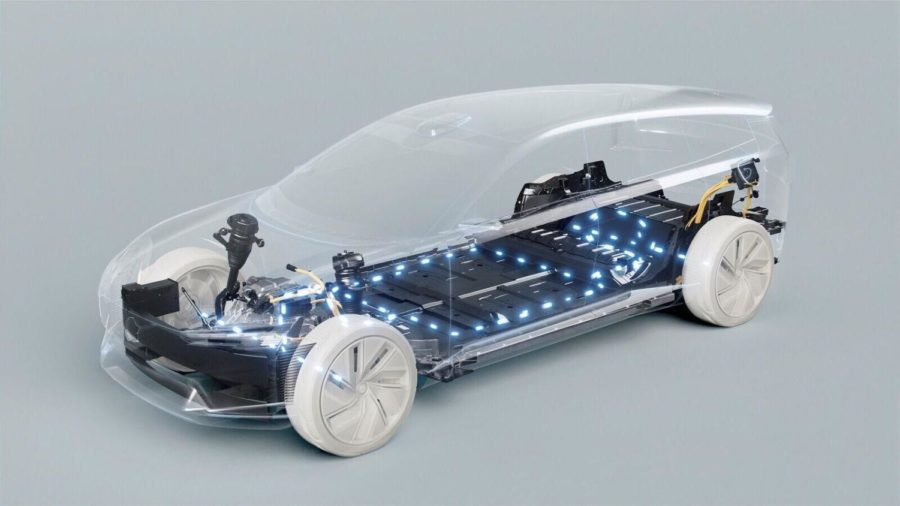New Volvo Battery R&D Center Coming in 2022
Volvo Cars and Northvolt will open a joint research and development center in Gothenburg, Sweden, as part of a $3.3 billion investment in battery development and manufacturing. (Volvo)
December 10, 2021
Volvo Cars (Volvo) and Northvolt will build a new research and development center in Gothenburg, Sweden, to continue their work developing better batteries for the next generation of Volvo pure electric cars. The new joint R&D complex will open in 2022 and is part of a $3.3 billion investment by Volvo and Northvolt in overall battery development and manufacturing.
Volvo and Northvolt announced earlier this year that they would create a 50/50 joint venture that would focus on making electric vehicle (EV) batteries—and the production process used to make those batteries—more sustainable.
“Our partnership with Northvolt secures the supply of high-quality, sustainably produced batteries for the next generation of pure electric Volvos,” said Volvo Cars CEO Håkan Samuelsson in a statement. “It will strengthen our core competencies and our position in the transformation to a fully electric car company.”
Volvo said the new R&D center would create a few hundred jobs in Gothenburg and that the battery packs developed there will also be used in future Polestar EVs. Volvo will use the technology created at the new center at a battery production plant located somewhere in Europe. The automaker will announce the exact location of this new battery plant next year, but Volvo has said it will likely be a big one, with an annual capacity of up to 50-gigawatt hours (GWh) worth of battery packs. That would be enough for around 500,000 cars each year. Construction on the plant will start in 2023, with large-scale production beginning in 2026.
Working so closely with Northvolt will provide Volvo with two main benefits. First, the automaker can make sure that the batteries being developed align with the goals it sets for its EVs, prioritizing range or reduced charging times, depending on the vehicle. Second, with this kind of vertical integration, Volvo can better handle the cost and overall carbon footprint of the batteries it will use in its zero-emission models. Knowing exactly what goes into a battery pack will help Volvo in its mission to become a climate-neutral company by 2040.
Northvolt is also working with other automakers on its electrification efforts. In 2019, Volkswagen announced it would invest over $1 billion in joint battery activities with Northvolt. The battery company raised a total of $2.75 billion this past summer in its largest financing round to date, with Volkswagen again participating. Northvolt also has contracts with BMW, Scania, and Polestar, among others.
Last month, Northvolt announced that its recycling program, Revolt, built its first lithium-ion battery cell with recycled battery waste at a lab in Västerås, Sweden. The battery’s nickel-manganese-cobalt cathode used metals previously used in another battery. Northvolt has said it plans to have 50 percent of its raw materials come from recycled batteries by 2030.
































































































































































